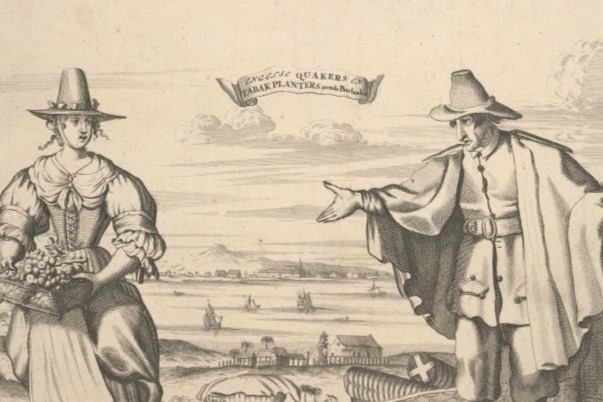Lancashire Quakers make first formal apology for role in enslavement
Lancashire Quakers have become the first in Britain to issue a formal apology for their historic involvement in the transatlantic trafficking and enslavement of African people.

Quakers in Britain agreed in 2022 to consider financial and other reparations for their role in the transatlantic trade in enslaved people, partly because of research in Lancaster by Quaker Ann Morgan.
Now, following several years of work, Lancashire Central and North Area Quaker Meeting (LCNAM) has issued a formal apology.
[QUOTE-START]
It is not just the past; it shaped the privileged society we live in today
- Ann Morgan
[QUOTE-END]
The apology acknowledges that in the 18th century, members of Lancaster Monthly Meeting trafficked more than 3,600 African people and held them in enslavement on plantations.
Others profited from goods produced through forced labour and used this wealth to build businesses, banks and infrastructure in the local area.
Morgan said: “It is not just the past; it shaped the privileged society we live in today."
“We apologise now to all the inheritors of our Quaker predecessors' actions - which, as London Yearly Meeting discerned in 1758, 'denied the holy spirit of universal love,'" the historic apology reads.
Lancashire Quakers have worked with local schools, museums, the Lancaster Black History Group and Lancaster University to share their history and its ongoing impact.
A plaque in Lancaster Meeting House recognises the role of Quakers in enslavement. And a city tour for new university students includes material on Lancaster's role in the transatlantic trade, supported by Quaker contributions.
Although Quakers in Britain condemned enslaving people from 1727, Lancaster Monthly Meeting took no action against its members.
The current area meeting recognises that this silence contributed to systems of inequality and racism that persist today.
Morgan said: “Acknowledging the voices of those still impacted by enslavement's legacy in the Caribbean and Africa, alongside the institutional racism enslavement helped embed in British society, makes the history we have uncovered - and now apologise for - a present-day concern."
The apology has been sent to the Churches Reparation Action Forum in Jamaica and the meeting is working to identify a partner group in The Gambia.
The apology is seen as a first step, with further action planned to help repair relationships with communities affected.
Quakers in Britain set up a Reparations Working Group in October 2023 and other Quaker meetings are being encouraged to explore their own histories and consider responses including research, truth-telling, education and relationship-building.